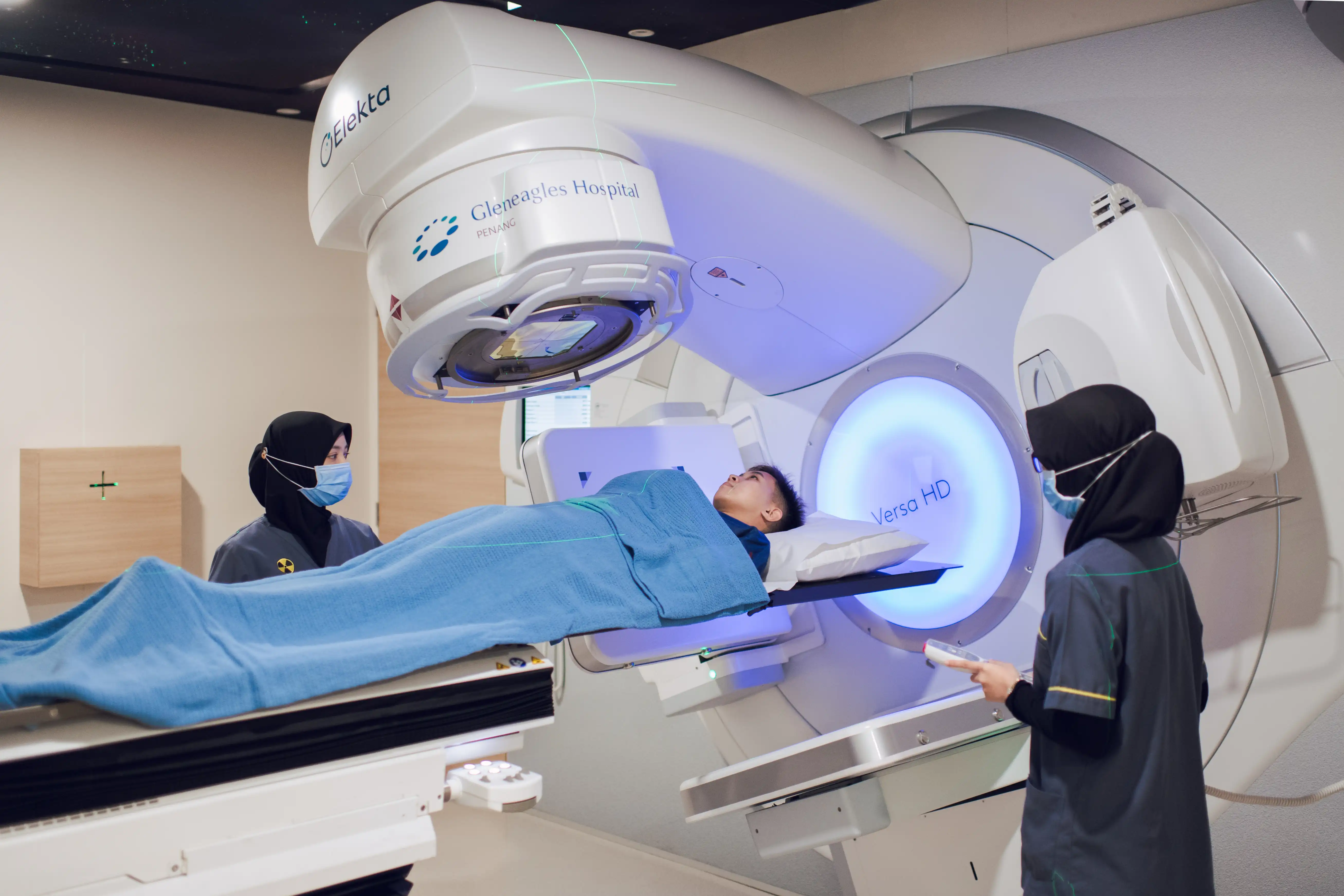What are Infectious Diseases?
Infectious diseases are illnesses caused by pathogenic organisms such as bacteria, viruses, fungi and parasites. Infectious diseases can be transmitted from a host to another, usually via air droplets or bodily fluids.
What is a vaccine?
Vaccines are usually made up of an inactive strain of a virus, or a small part of the pathogenic organism called antigens. Vaccine allows our body’s immune system to recognize the inactive virus or antigen as foreign bodies. This allows us to develop antibodies specific to target the foreign bodies.
Vaccination provides benefits including increasing immunity and saving costs of treating diseases that are preventable, as well as preventing the spread of diseases to your loved ones and other individuals, especially those who are immune-compromised or susceptible to infections.
What are the possible side effects of getting a vaccine?
Like any other medication, vaccines have side effects that are often mild and usually resolve by themselves. Serious side effects and adverse events are extremely rare.
Common side effects after getting a vaccine are:
- Pain, swelling, or redness at the injection site on your body
- Mild fever
- Chills
- Feeling tired
- Headache
- Muscle and joint aches
Cervical Cancer
It is well known that the human papilloma virus (HPV) is one of the main causes for cervical cancer. Most infections of HPV are related to sexual activity, both penetrative sexual intercourse and non-penetrative sexual activity (i.e. oral sex, anal sex and hand-to-genital contact).
HPV vaccines can dramatically reduce the risk of cervical cancer by preventing HPV infections. The vaccine, however, does not protect women who have already contracted HPV.
HPV 6 and 11 cause 90% of genital warts.
The latest cervical vaccine protects against 9 types of HPV strains (i.e. 6, 11, 16, 18, 31, 33, 45, 52 and 58). It helps reduce a woman’s risk of getting cervical cancer and genital warts. This vaccine is FDA-approved for use in both males and females.
Hepatitis A and Hepatitis B
Hepatitis is a condition where the liver is inflamed. There are various causes for hepatitis. Viral causes for hepatitis such as Hepatitis A virus (HAV) and Hepatitis B virus (HBV) are both preventable with vaccination. HAV is transmitted via ingestion such as food intake (faecal-oral route) while HBV is transmitted via bodily fluids. WHO recommends both HAV and HBV vaccines for both children and adults, followed by booster immunization as required. This vaccine is highly recommended for people who are travelling, healthcare workers, or those with high-risk exposure.
Complications of hepatitis can lead to cirrhosis and liver cancer. A single or combination vaccine formulations are available for Hepatitis A and Hepatitis B.
Influenza
Influenza is one the most common infectious diseases. It is a highly contagious, air-borne disease spread through droplets carrying the influenza viruses. Influenza can cause mild symptoms such as fever, cough, running nose and joint ache. However, it can also cause respiratory failure and death.
an infectious disease caused by an influenza virus. The virus may cause flu in humans as well as other mammals and birds. Influenza virus is usually transmitted from the infected host through bodily fluids such as saliva, droplets when sneezing, blood, and faeces.
World Health Organization (WHO) recommends the influenza vaccine for high-risk groups, such as pregnant women, young children, elderly people, healthcare workers, and people who have chronic illnesses or are immuno-compromised. Influenza vaccines are also recommended for people of all ages to protect themselves from seasonal flu.
It is important to get an influenza vaccination at least yearly as the influenza vaccines are updated for new viral strains on a regular basis.
Chickenpox
Chickenpox is a viral infection caused by the varicella-zoster virus (VZV). It is highly contagious and infectious.
Chickenpox is usually a mild, self-limiting disease that resolves by its own. However, 1 in 4,000 children with chickenpox develops encephalitis, which involves the brain and leads to serious and potentially fatal complications.
The virus is usually spread through direct contact with the rash, as well as through inhaling air droplets from coughs or sneezes of an infected person. Currently, chickenpox is preventable via vaccination, which is widely recommended for high-risk groups such as children, elderly and immuno-compromised individuals.
Herpes Zoster
Herpes Zoster, also known as shingles, is a viral disease caused by inactive (dormant) varicella-zoster virus (VZV). Shingles arises when the VZV reactivates in a person’s body and causes blisters on the skin.
It is recommended for all individuals aged above 60 years old to receive routine herpes zoster vaccination. It is also recommended for immuno-compromised individuals but they will require a doctor’s assessment prior to the vaccination.
Pneumococcal Disease
Pneumococcal diseases are caused by the bacterium Streptococcus pneumoniae. This bacterium is the most common bacterial cause for community-acquired pneumonia (CAP). A S. pneumoniae infection may affect various body organs in invasive pneumococcal diseases such as:
- Pneumonia (lung infections / inflammation)
- Meningitis (inflammation of the membrane surrounding the spinal cord or brain)
- Sepsis (an infection in the blood),
- Sinusitis (infection of the sinuses)
- Otitis media (middle ear infection)
- Osteomyelitis and septic arthritis (infection of the bone and knee)
- Endocarditis (infection of the heart)
High risk groups who are more susceptible to a pneumococcal infection include:
- Infants
- Young children
- The elderly
- People with chronic health conditions such as heart diseases
- People with weakened immune systems
- Smokers
Two types of pneumococcal vaccines are available to prevent pneumococcal diseases:
- Pneumococcal Polysaccharide Vaccine (PPSV23)
- Pneumococcal Conjugate Vaccine (PCV13)
WHO recommends routine PCV13 vaccination for preventing pneumonia and invasive pneumococcal diseases for infants, immune-compromised or high-risk individuals, and the elderly.
Encephalitis
Encephalitis is defined as inflammation of the brain. It is caused by various factors such as infection from bacteria, virus, fungi or an attack from one’s own immune system. Encephalitis is considered as an acute emergency and should be treated immediately if suspected. Recovering from encephalitis depends on the severity of the inflammation.
Japanese Encephalitis (JE) is a type of viral encephalitis (viral infection of the brain) that is caused by the Japanese Encephalitis virus (JEV). JE is a mosquito-borne disease that is spread by infected mosquitoes. The virus exists in a cycle between mosquitoes, pigs and / or water birds. Malaysia is one of the 24 countries listed in WHO South East Asia and Western Pacific regions with JEV transmission risk.
Symptoms of JE includes mild fever and headache. Some infections occur without apparent symptoms. However, in serious cases it may present with rapid onset of high fever, neck stiffness, disorientation, coma, seizures, spastic paralysis and eventually death. The fatality rate is high in these serious cases. Complications (sequalae) of JE includes permanent intellectual, behavioural and neurological changes such as paralysis, recurrent seizure and inability to speak.
Currently there is no antiviral treatment available for patients infected with JE. Treatment revolves around supporting and stabilising the patient.
To reduce the risk for JE, travellers and individuals staying in JE-endemic areas should take precautions to prevent mosquito bites such as using mosquito repellent, wearing long sleeves clothing, using mosquito coil etc. Furthermore, there are safe and effective JE vaccines available for preventing this disease. WHO recommends immunisation in regions where JE cases are detected and where there is a suitable environment for JE virus transmission.
To make an appointment for vaccinations, please contact our Health Screening Centre at:
+604-2229103
my.gpg.hsc@parkwaypantai.com









